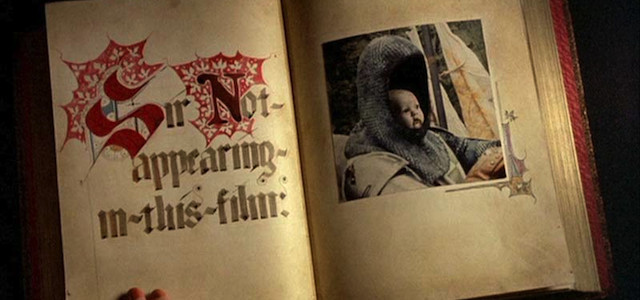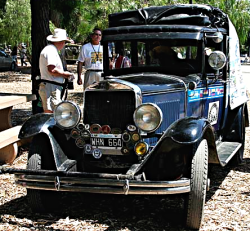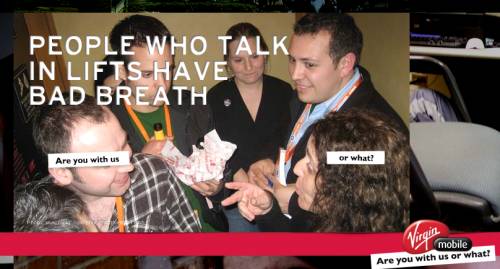College Football is Huge in Clemson's Death Valley
While looking for a photo of the entrance to Clemson's Death Valley football stadium, I found a bizarre form of photography that's exemplified by this picture:
Take a close look at the larger sizes of Steven Bower's image, which is called a tilt shift, and let me know whether you think it's a photo of a real scene or a miniature.
President Bush: My Constituents are The Enemy
Political Fretwork, a liberal blog on Buzzword.Com's free WordPress hosting service, noticed something funny about President Bush's press conference yesterday that has escaped the attention of the media -- the president called the insurgents in Iraq his constituents:... there's a lot of constituencies in this fight -- clearly the American people, who are paying for this, is the major constituency. ...
A second constituency is the military. ...
A third constituency that matters to me a lot is military families. ...
Another constituency group that is important for me to talk to is the Iraqis. ...
And, finally, another constituency is the enemy, who are wondering whether or not America has got the resolve and the determination to stay after them.
The term "constituents" refers to the people served by a politician -- the voters who put Bush in office and keep him there. Although this is clearly an example of the president's seven-year assault on the English language, Fretwork points out that the insurgents in Iraq must be happy with the constituent services they've received under this president:
How many of the enemy would vote to impeach George Bush? I'm betting the minority. He is the best recruiting agent they have.
Robert Heinlein's Encyclopedia of the Future
One of the things I enjoy about reading old science fiction is grading the speculative guesses about the future. In his 1954 novel The Star Beast, Robert Heinlein imagines the encyclopedia of the future, a giant mechanical supercomputer that occupies an entire building:
The universal dictionary in the British Museum was not more knowledgeable than the one in the Under Secretary's office; its working parts occupied an entire building in another part of Capital, and a staff of cyberneticists, semanticians and encyclopedists endlessly fed its hunger for facts. He could be sure that, whatever the "Hroshii" were, the Federation had never heard of them before.
Today, Wikipedia runs off of around 89 machines in Florida, 11 in Amsterdam, and 23 in Korea -- 123 rack-mounted blade servers that could be stored in a single room, maintained by a small staff and accessed anywhere in the world.
Looking up this passage in Google led me to Technovelgy, a site that catalogs predictions about technology in science fiction novels, comparing them to actual development. The site includes 110 of Heinlein's imagined inventions, including the chronometer, a spot-on description in 1940 of an atomic watch.
Virgin Mobile Botches Creative Commons-Driven Ad Campaign
Virgin Mobile in Australia took advantage of the huge repository of photos on Flickr that are licensed for commercial reuse under Creative Commons, incorporating dozens into billboards, newspaper ads and a web site.
Unfortunately for the company, the license covers the photographer's copyright but not necessarily the people in the pictures. In many countries, including the U.S. and Australia, you can't use someone's photo commercially without their permission.
Shelley Powers puts the blame for this squarely on Creative Commons for not educating users of its licenses. If you release photos for commercial reuse, but you don't secure model releases from people they depict, you're subjecting yourself -- and those who use your work -- to a thorough proctological workup by an intellectual property attorney.
There is still a massive misunderstanding about the terms used in these licenses, and little done on the part of the CC promoters to do anything other then grunt, "CC, Good!"
I'd put more of this on Virgin Mobile's ad agency, which presumably knows the model release issue a lot better than amateur photographers on Flickr. But if Creative Commons has done anything to educate photographers about the commercial rights of their subjects, I haven't seen it.
Making matters worse, Virgin Mobile is using the ad campaign to insult the subjects, as in this photo of computer book author Molly Holzschlag:
I'm guessing that a bunch of people are about to get free phones.
Sir Not Appearing in This Film

I watched Monty Python and the Holy Grail again this weekend with my son and nephew, who at 11 and 14 are the perfect age to appreciate the Knights Who Say Nee and a rabbit who brings "death with nasty, big, pointy teeth" but not quite old enough for the rescue of Sir Galahad the Chaste from the peril he faced in Castle Anthrax.
Sir Lancelot: We were in the nick of time. You were in great peril.
Sir Galahad: I don't think I was.
Sir Lancelot: Yes, you were. You were in terrible peril.
Sir Galahad: Look, let me go back in there and face the peril.
Sir Lancelot: No, it's too perilous.
Sir Galahad: Look, it's my duty as a knight to sample as much peril as I can.
Seeing the film again made me wonder whatever became of Sir Not Appearing in This Film, the infant clad in plate mail who does not, true to his name, appear in the film. He's portrayed by William Palin, the son of Python legend Michael Palin, and IMDB reveals that he went on to not appear in any other film of the next 45 years (and counting).
Palin grew up to become a museum curator of Sir John Soane's Museum, a museum of architecture and sculpture in London where he turned up in a 2005 newspaper article. In 2020 he wrote about being CEO of Barts Heritage Trust, a historic renovation effort of the 900-year-old St. Bartholemew's Hospital in London. His father Michael had heart-valve replacement surgery there earlier in the year.
Constitutional Glitch: Presidents Don't Fear Impeachment
Even with my low opinion of President Bush, I did not expect him to give Lewis Libby a get-out-of-jail free card. The constitutional implications of the president freeing a White House official from the sentence doled out in a criminal case, when the crime involves the vice president and possibly even the president himself, couldn't be more clear.
When the Senate failed to remove President Clinton from office after his impeachment in 1999, falling 22 votes short of the 67 needed, I thought it was a great outcome to an overblown offense (hubba hubba).
Today, I'm much more in agreement with what David Broder argued in 1993 after another President Bush helped his officials escape legal culpability for crimes against the nation -- we have to find a way to prove that the president is not above the law:
... we have not found any effective method to instruct White House and executive branch officials on their duty to obey the law, because we have failed as a society to express our contempt and disgust for those who violate their oaths of office with such impunity.
The record is depressing. All those top White House and Justice Department officials in the Nixon administration went to jail for their parts in planning, or covering up, Watergate. You would have thought that would send a message clear enough for anyone to grasp. But the U.S. attorneys and special prosecutors have been kept busy by successor administrations. The crimes and the coverups go right on.
The best thing we could do for our country is to impeach and remove one or two presidents as a lesson to the others.
The rapacious growth of federal power in the hands of a single politician-in-chief is the biggest threat to our form of government, especially when you consider the likelihood of future terror attacks that will bring more efforts to trade liberty for security.
The leading candidates for the next president disagree on what they would do with power, but they don't seem to disagree at all about accumulating it, aside from Republican gadfly Ron Paul. I expect the next president to eagerly embrace Vice President Cheney's seven-year campaign to expand executive power and marginalize Congress and the courts. It would be karmic retribution for Republicans to be helpless to stop a President Hillary Clinton, say, from taking Cheney's extraconstitutional superpowers for a spin, as long as you forget Benjamin Franklin's famous warning when asked what form of government we've created here: "A republic, if you can keep it."
Our government was designed to function under a president who feared impeachment the way other democratic leaders in the West fear votes of no confidence or the calling of new elections. President Bush would never have dared commute Libby's sentence if he had a realistic chance of being removed from office.
Driving from Argentina to Alaska to Asia
 Last night on Highway A1A near St. Augustine, I drove past this 1928 Graham Paige Model 610 touring car, puttering down the road with hazard lights blinking and the words "Spark Your Dream" and "Argentina to Alaska: Done!" on the side.
Last night on Highway A1A near St. Augustine, I drove past this 1928 Graham Paige Model 610 touring car, puttering down the road with hazard lights blinking and the words "Spark Your Dream" and "Argentina to Alaska: Done!" on the side.
Showing a remarkable lack of geographic knowledge, I told my children they were probably heading back home, forgetting that we live on a peninsula that doesn't get much South America-bound traffic.
The drivers are Herman and Candelaria Zapp, Argentineans who've been driving all over the Americas at a top speed of 35 mph with their two young sons. In 2003, they finished a 43,717-mile drive from Buenos Aires to Prudhoe Bay, Alaska, in two years, eight months and 17 days.
The boys are enjoying the trip, Pampa never asks "are we there yet?" instead "Where are we going?"
Pampa was a product of the trip, as Herman Zapp told CNN:
... we got a romantic moment in Guatemala. In Belize we found out something with Canny. In Mexico, grows in the belly. And in North Carolina was born our son.
Planning next to cross Asia for three years, they're financing their travels in part with a book, Spark Your Dream, which sounds from its back cover to be as arduous as their journey:
Yes, since you're reading, sit here with us. Pack light. No, don't sit there, get yourself at the driver seat. Something good is going to happen in our lives so let's go and seize the moment. It will be a tour in the exterior world, which only reflects a fraction of the journey in your interior.
One thing that surprised me, from photos, is that the Zapps appear to be anatomically normal. I figured that crossing the world for six-plus years in an antique car with no shock absorbers would give you giant calloused baboon ass.



